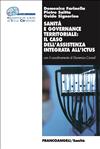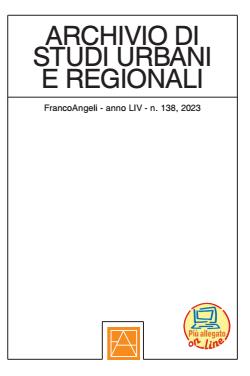
LIBRI DI PIETRO SAITTA


The essay explores the links between «informal economies» and the concept of «resistance». The author argues that the illegalities of the marginal classes should be looked at through their connection to those of the élite classes and the Government. Within this framework, the informal economy is both the outcome of a set of material conditions aiming at the subordinated inclusion of entire classes of citizens, and a sign of the desire of those citizens to evade the limits imposed on them by legislations and social hierarchies. In contrast with the dominant rhetoric on public order, informal economy is seen in this context as a particular area of engagement and effort of the «marginals» aimed to create paradoxical forms of inclusion

Analizzando i modi attraverso cui 6 regioni italiane (Piemonte, Lombardia, Marche, Toscana, Campania e Calabria) affrontano l’applicazione delle linee-guida sull’ictus, il testo offre uno spaccato sul cambiamento organizzativo dei sistemi sanitari.
cod. 1350.40


Anni Cinquanta: il petrolio affiora in Sicilia e le popolazioni accolgono tripudianti l’arrivo degli stabilimenti petrolchimici. "La Sicilia come il Texas", è quello che molti pensano. Mezzo secolo dopo il conto del sogno è servito: malformazioni, malattie da industrializzazione, risorse idriche devastate e sottratte ai territori, criminalità organizzata. Gela è una delle capitali italiane della petrolchimica: inizia da qui la resistenza ai padroni dell’oro nero. Gli autori discutono il tema del risanamento e descrivono l’impatto socioeconomico dell’industria petrolchimica.

The Hidden Normative Process Behind the Construction of European Migration Policies (di Anna Piasecka, Pietro Saitta) - ABSTRACT: This paper examines how legal science can provide a new perspective and instrument of analysis for understanding how action is produced by legal rules in a given system. By treating legal rules as a factor of explanation in perceiving political action, the authors aim to use them as a scientific perspective that will reflect whether there is a normative determination to generate harmonised legislation with regard to immigration and a multicultural society in Europe, or whether there is opposition based on various different national reasons and interests in EU member states. Tools s provided by the science or norms, as defined by the Swedish scholar H. Hydén, are applied to observe immigration policies, both at the supranational (European) level and the national (Italian) level. The results suggest that there is a process of disarticulation of these policies in the heterogeneous position typical of the European Union, which noticeably shows a lack of will to co-ordinate the actions of individual member states and induce them to share common visions on the question.

The article starts from the debate about the change in citizenship that has been affecting the sociological and politological panorama in recent years and then moves on to ponder legal change and how slowly it takes place, compared to the rapid flow of migration, in a perspective that combines elements of legal formalism and sociological realism, investigating the differences between the "literal" inter-pretation of the law (as expressed by national and supra-national legal orders) and its "material" enforcement. In addition, there is a discussion about the advisability of amending the Italian legislation governing rights of citizenship in order to adapt it to society’s new make-up - as has been called for from many sides - maintaining a great deal in terms of (democratic and egalitarian) spirit, but bringing about deci-sive changes in terms of substance. Finally, the author hypothesises an at least minimal explanation of the reasons why Italian law is so slow in adopting the sig-nificant stimuli for change coming from the real world.